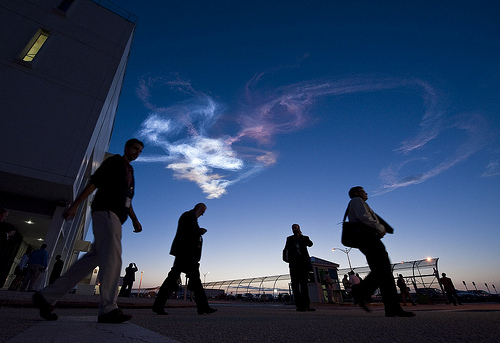When I was much younger, my parents fulfilled the wishes of a dreamer of a kid by sending me to Space Camp.
It was an interesting experience. One week of being away from my parents, learning to get along with about one hundred total strangers, and investigating the science, the excitement, and the teamwork behind space travel and our country’s space program. Looking back on it as an adult, it was merely a slight taste of what the real thing is, but it was nonetheless exciting and taught me many things.
As part of the curriculum, there was a “simulated” Shuttle mission (I use the term loosely as it was very time-condensed and largely automatic). Part of the exercises during the week led up to the part you would play within this (mostly) scripted exercise. It was with no small amount of pride that I took the role of Mission Commander. I was very excited and—looking back on it—about as ambitious as someone in elementary school could have been.
There is an award given to one of the teams from each “class” in a given week. The award is hyped up and much talked-about throughout the week. Every team wanted to win it.
At the end of the week we participated in the simulated mission. It involved a highly scripted set of actions, with a computer console that you punched “commands” into that would move the computer simulation from point to point. It was very structured. There were, however, “break points” within the structure that asked a question of the team. This question would involve dealing with some kind of simulated crisis or problem.
Not long into our simulation, we were faced with one of those problems. As we’d practiced and had been instructed, I acted in my role and asked the other team members for their opinions regarding the problem. Most of them gave the same answer. There was a clock running; a decision had to be made.
I acted like an idiot. I assumed that I knew better and could answer the question correctly while they could not, so I chose another answer from the list. The wrong answer. The majority of the team had been right, and I had overruled them simply because I was in charge and I thought I had the answer. My recollection is that I’d basically decided what I was going to say even before I asked them the question.
Needless to say, we didn’t win the award, and I had let down the rest of my team. I failed them as a leader by not listening to them.
Like this:
Like Loading...

